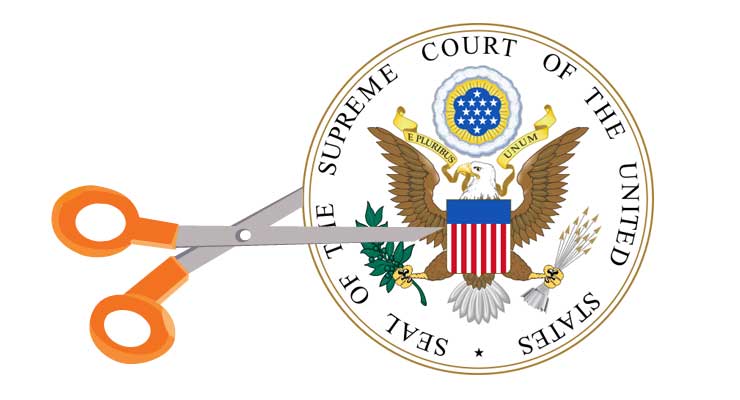
The latest analysis on the Supreme Court decisions from the Brennan Center For Justice‘s Zachary Roth:
Since Thursday, Chief Justice John Roberts has been winning praise for independence and fair-mindedness after blocking — at least for now — the Trump administration’s bid to rig the census by adding a question on citizenship. But let’s be clear: by giving a green light to partisan gerrymandering in an opinion released the same day, Roberts and the rest of the court’s conservative bloc dealt a body blow to American democracy.
The chief’s opinion in Rucho v. Common Cause doesn’t withstand even basic scrutiny. The court’s majority decided that partisan gerrymandering disputes are “non-justiciable” — that is, the courts can’t intervene in them — because, essentially, courts aren’t equipped to come up with a standard to determine when gerrymanders go too far. Never mind that the lack of what the court calls a “judicially manageable standard” appears to have literally never held the justices back before on any other issue. Never mind also that, as the Brennan Center’s Tom Wolf has pointed out, five different federal courts, relying on the work of respected political scientists, have had little trouble coming up with manageable standards to strike down partisan gerrymanders in Wisconsin, North Carolina, Ohio, Michigan, and Maryland. To Roberts, it’s all a bunch of “sociological gobbledygook.”
See the full story here.
Leave a Reply